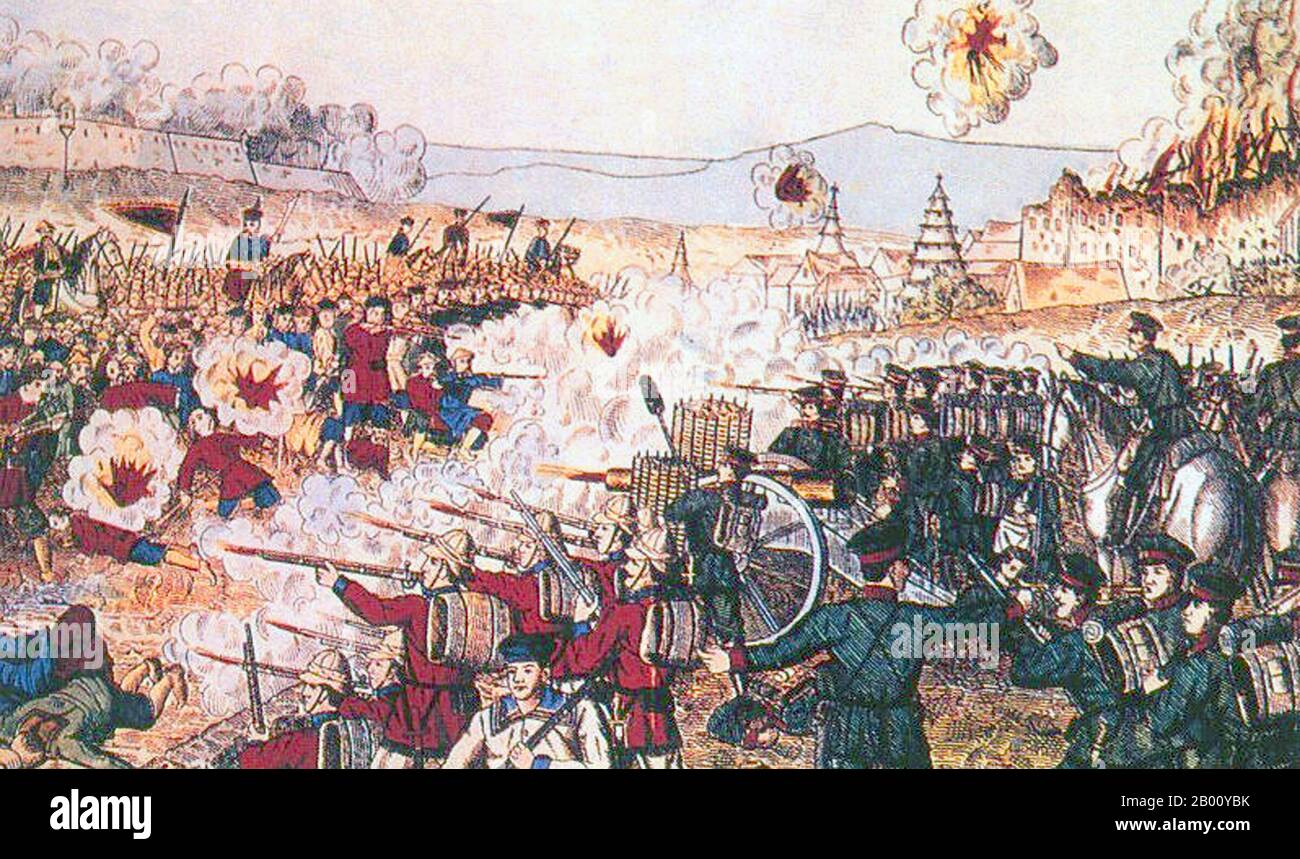China: Boxers fighting the Eight-Nation Alliance (British and Japanese soldiers depicted), 1899-1901. The Boxer Rebellion, also known as Boxer Uprising or Yihetuan Movement, was a proto-nationalist movement by the Righteous Harmony Society in China between 1898 and 1901, opposing foreign imperialism and Christianity. The uprising took place in response to foreign spheres of influence in China, with grievances ranging from opium traders, political invasion, economic manipulation, to missionary evangelism. In China, popular sentiment remained resistant to foreign influences.

Image details
Contributor:
CPA Media Pte Ltd / Alamy Stock PhotoImage ID:
2B00YBKFile size:
52 MB (2 MB Compressed download)Releases:
Model - no | Property - noDo I need a release?Dimensions:
5544 x 3280 px | 46.9 x 27.8 cm | 18.5 x 10.9 inches | 300dpiPhotographer:
Pictures From HistoryMore information:
This image could have imperfections as it’s either historical or reportage.
The Boxer Rebellion, also known as Boxer Uprising or Yihetuan Movement, was a proto-nationalist movement by the Righteous Harmony Society in China between 1898 and 1901, opposing foreign imperialism and Christianity. The uprising took place in response to foreign spheres of influence in China, with grievances ranging from opium traders, political invasion, economic manipulation, to missionary evangelism. In China, popular sentiment remained resistant to foreign influences, and anger rose over the 'unequal treaties', which the weak Qing state could not resist. Concerns grew that missionaries and Chinese Christians could use this decline to their advantage, appropriating lands and property of unwilling Chinese peasants to give to the church. This sentiment resulted in violent revolts against foreign interests.